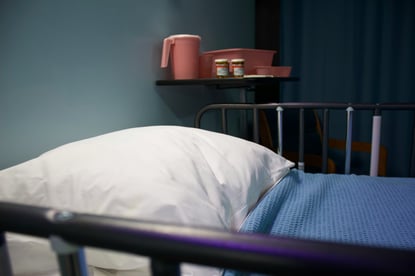52 Days
Join Our Movement
What started as an idea has become a national movement. With your support, we can influence policy and inspire lasting change.
Become an Advocate
This kind of skill-mastering gave me an enormous psychological boost. Through some kind of molecule-shifting in my brain, I saw the seemingly unsolvable problems I had the day before I was paralyzed – a career going nowhere, a mortgage I couldn’t pay, a life without momentum – in a whole new light. They now seemed fixable. It took a few years, but, by gum, they all got fixed.
During this latest period of incarceration, I was learning nothing but the art of doing nothing, not in Zen way, but in the common meaning of just staying alive and crossing the days off on a calendar. It was, in a word, tough. It was monumentally boring, frustrating, infantilizing, and without my wonderful wife and kids and generous friends, a mindless slough.
That’s all in the past, thank goodness. I’m at home now, with steady home care in all areas and feeling like I am truly healing. I can even roll around the house with both arms without the sling. I now see the whole ordeal in the rear view mirror, getting smaller and less significant as I move along. If I learned anything, I think I’ve learned how not to look back and incessantly amplify the pain of the past. It’s a waste of precious time.
